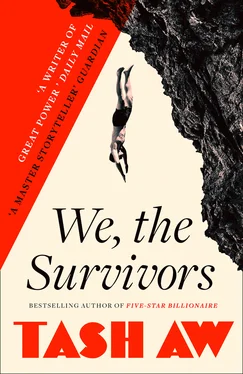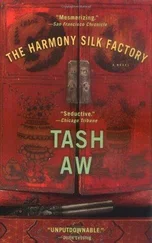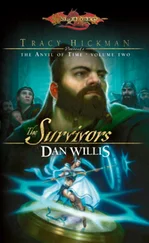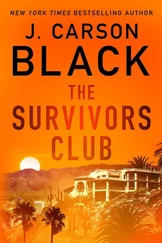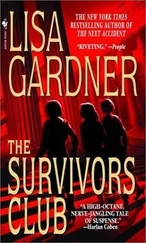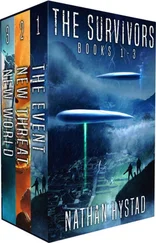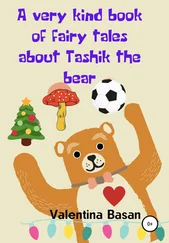That’s why I say I’m lucky. I don’t work, yet I’m alive. My days are calm. I’d even say I was blessed.
[ Long silence. ]
Sometimes … [ Hesitates; reaches for and picks up cup of tea but does not drink. ] Sometimes, yes, of course I think of that night. How can I not? I think of the two men who were present, Keong and the Bangladeshi guy. I know what you’re expecting me to say: that I see their faces, and that I’m tortured by the sight of them – but that’s not the way it is. I don’t feel anything about either of them – not hate, not pity. Maybe I should have felt anger towards Keong; maybe things would have turned out differently if he hadn’t come back to see me. He had choices. He didn’t have to ask me to do all those things.
Now when I think about him, I don’t see the Keong of that night. I see the version of him that appeared in court three years later, when my case was being appealed. His white long-sleeved shirt, his neat hair, even the way he spoke to the judge, softly and respectfully – anyone would have thought he was a salesman for an IT company in Petaling Jaya. I didn’t recognise him at first, I thought it was someone else, that the prosecutors had brought the wrong guy to the courtroom. The lawyers asked him questions about himself, and he supplied the bare facts – he owned a business importing frozen dumplings from China, his income stream was steady, he owned a Toyota Camry and had a home loan from Hong Leong bank. He’d recently been on holiday to Australia and was saving up to send his daughter to boarding school there in seven or eight years’ time, when she was old enough to travel on her own. Right now she had just started at a private school in Cheras, close to where he lived, so he could spend a lot of time with her at home. The moment he finished work, he’d rush home to his wife and daughter and they’d spend the evening having dinner, doing the daughter’s homework together and watching a bit of TV. She was a studious girl – she really loved science!
He answered quietly, as if he didn’t want me to hear what he was saying. On the other side of the courtroom I had difficulty making out some of his words. Mortgage. Laptop. Playground. The man speaking seemed to be embarrassed by the way he lived. Why would someone feel shy about having a life like that? That was when I realised it was Keong – the same one I had known since my teenage years, and I knew why he appeared so awkward. He was ashamed because of my shame – or to be more precise, he was ashamed of being happy while my shame was on display to the world. We’d shared so much as children. People used to say, ‘No use giving Ah Hock any ice cream, he’ll just give half to that little bastard Keong.’ But time – that was something we couldn’t share. It could only favour one of us.
And I thought, Of course he’s changed. All those years in prison, when I went through phases of either sleeping all day and all night, or lying awake all day and all night – phases that lasted weeks and broke down my sense of time, my resistance to the idea that every day should be different – during that time, Keong was changing himself. Anyone could have become a new person in that period, anyone could have acquired a brand-new life. He’d been so proud of his hair, the long fringe that he’d dyed a shade of coppery orange when he was fifteen, and that he’d kept right up until that evening when we last saw each other. I used to joke with him. ‘Hey, big brother, going to become father, still keep that gangster hairstyle meh?’ He called it ‘blond’, thought it made him look like a Hong Kong pop star. He always used to do this [ sweeps hand theatrically over forehead, throws back his head in slightly camp fashion ]. Made me laugh. You’re a nobody, just like the rest of us – that’s what I used to say to him every time he tried to show off.
That hair was gone now, trimmed short and allowed to go back to its natural colour. I hadn’t seen him with black hair since we were teenagers. He’d put on weight, which made him look younger, not older, like an adolescent who’d once been chubby but was starting to shed all his puppy fat and turn into a handsome man. I could tell that he’d given up smoking, that he was eating better – his complexion was smoother, the deep crease between his eyebrows which he’d had since he was a child had disappeared. Ironed out by those three years.
At one point the lawyers started asking him questions about my character. Did he ever know me to be impulsive? Had he ever seen violent tendencies in me? Was I someone who felt sorry and regretted bad deeds? At first he answered clearly and simply, without hesitation, just like the serious businessman he’d become. It wasn’t a role he was performing, it was who he really was now. Both his English and his Malay had improved, and he used them carefully, considering every word before saying it. But as the questions continued, he began to feel at ease and started speaking more freely, sometimes using expressions you might consider rude. He even told a little story from our teenage years. One time hor, I steal biscuit from the store, I share with him but I steal so much we cannot finish, he say must return, must return, I say no way, poke your lung, but he lagi force me so next day we go give back biscuit. Your mother. Make me lose face! But he say how can steal, she also no money.
‘OK, OK, Mr Tan. I think that will do.’ When the lawyer said that I laughed. Even in his new life, Keong couldn’t resist talking too much. For a few seconds, when he was recounting that incident – which I couldn’t recall – I saw the years and the extra weight he’d acquired fall away. I saw the skinny kid with a sharp face and earrings again, the one I’d grown up with and had always thought would end up in jail. We even joked about it when he left KL to find work elsewhere. ‘Don’t worry about an address,’ I’d told him, ‘I’ll just come looking for you in prison.’
After the lawyer’s admonishment he fell silent once more – a husband, a proper father, someone you could trust to hold a family together. That’s the image of him that comes to me from time to time these days. A respectable man, beyond hatred.
It was only much later that I realised I’d only spent three years in jail. Three years – that’s nothing! Why did it feel so long when I was in my cell? And how did Keong change so quickly? That’s when I felt bitter. I’d never held a grudge against him, not even for coming back to Klang and bringing Evil into my life. When I talked about it to members of the church some years later they said, You must forgive him the way God forgives you. And I thought, There’s nothing for me to forgive; I don’t feel anything towards him. But when I saw him in the courtroom and thought of how quickly he’d changed, I felt angry. He had taken hold of time and mastered it, I had let myself be crushed by it. It was only three years, I told myself, only three years – you can make up that time and turn things round for yourself. But I knew I was no longer capable of changing my life. Evolution is a funny thing. For the longest time, you believe in the power of change – in your ability to mould your life through even the smallest acts. Even buying a four-digit lottery ticket feels loaded with optimism, as if those five bucks might turn into a twenty-thousand bonanza and transform your life. Then one day it disappears, that blind devotion to hope, and you know that even if you pray all day, nothing will happen to you. My anger was directed at myself, I didn’t blame Keong. Seeing him reminded me of the person I could no longer be.
As for the other man, his face remains a blank, even though it should be the one thing I remember from that night. In my defence, it was very dark when I first saw him. What’s more, he turned away from me before I picked up the piece of wood. I couldn’t see his face when I struck him.
Читать дальше
